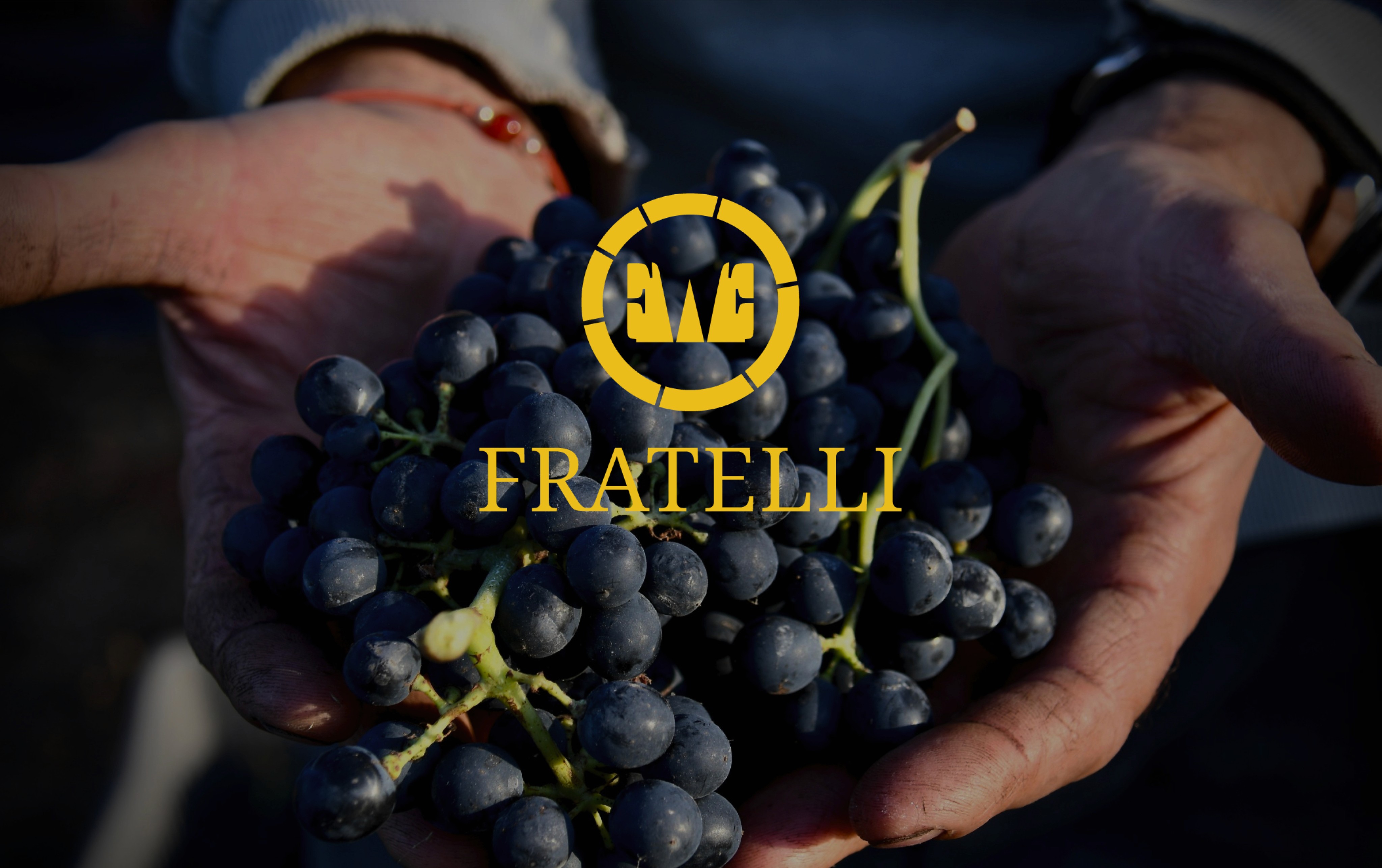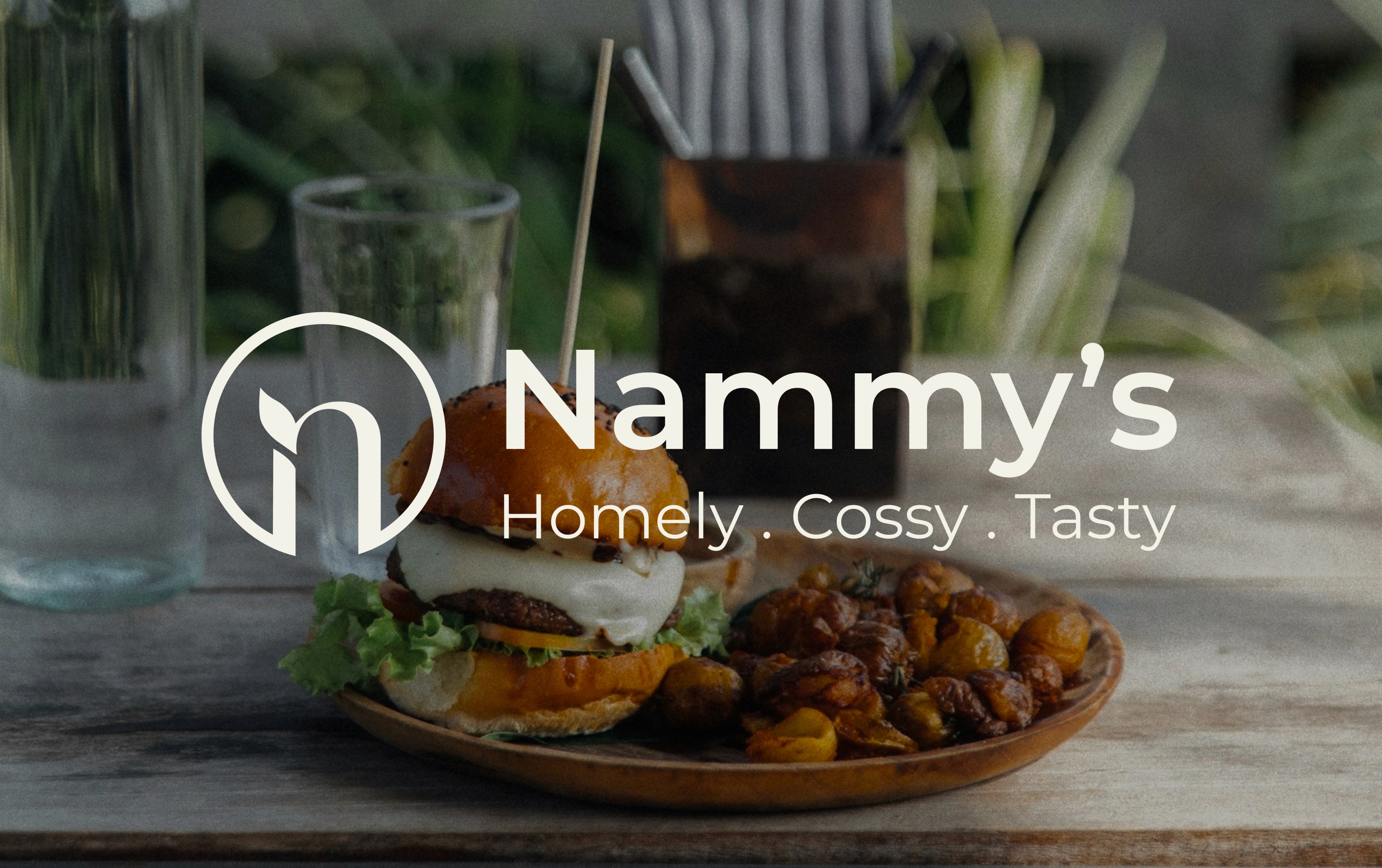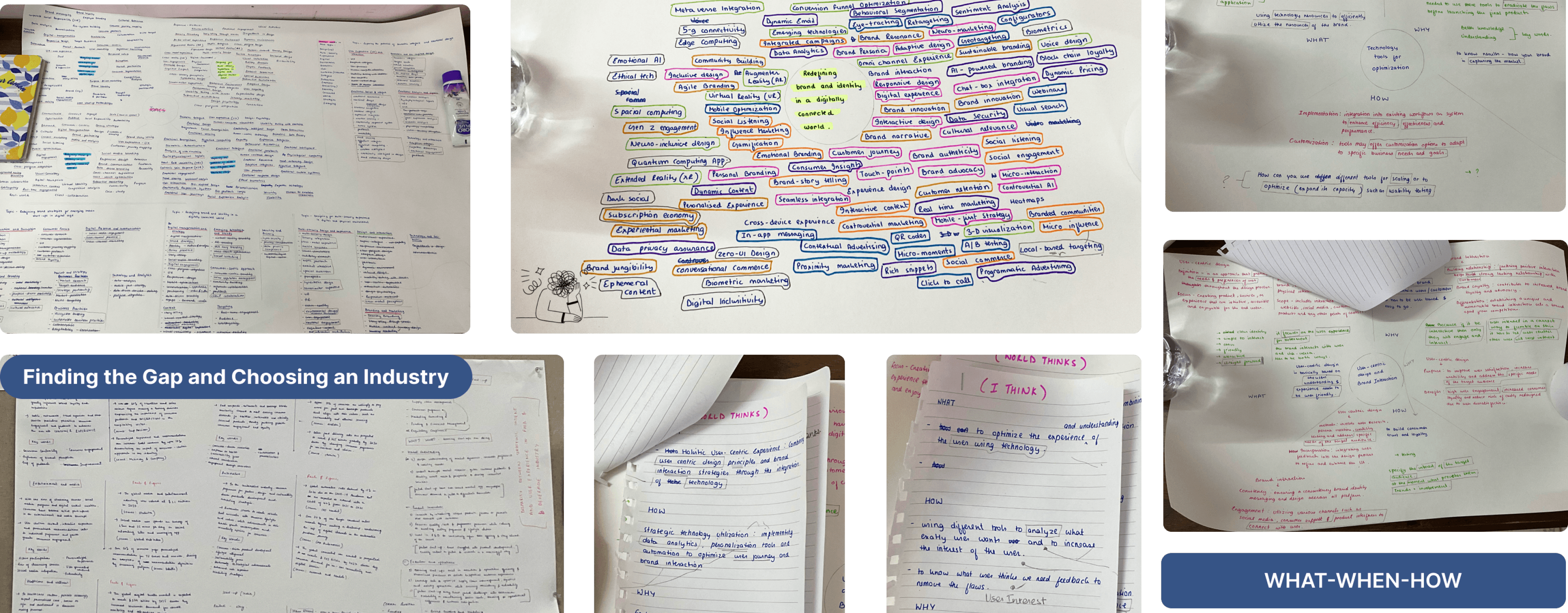TechNova
Bridging the Gap: Strategic Technology Utilization for F&B Startups in India's Digital Age


TechNova
Domain
Food & Beverage Industry
Platform
Mobile Application
Duration
3 weeks
Strategic Adaptation for F&B Startups in the Digital Age
Providing design students the chance to buy or lease carefully curated stationery kits, all while including a special feature for exclusive and high-end goods. Maintaining a focus on Eco-friendliness, the platform encourages the sale or lease of personal items, thereby tackling both green and budgetary challenges.
Understanding the Bigger Picture
The Gap Statement
The absence of strategic technology utilization to analyze user interest and interaction within the brand experience poses a significant gap.
Define Strategic technology utilization
Strategic technology utilization is the deliberate use of technological resources to achieve organizational goals. It involves assessing key technologies, aligning them with business objectives, prioritizing investments, and integrating them into strategic planning. This approach drives competitive advantage and sustainable growth through innovation, risk management, and effective collaboration.
The Problem Statement
Disparity between strategic intent and user experience in F&B (food & beverage) industry
Mind mapping & process
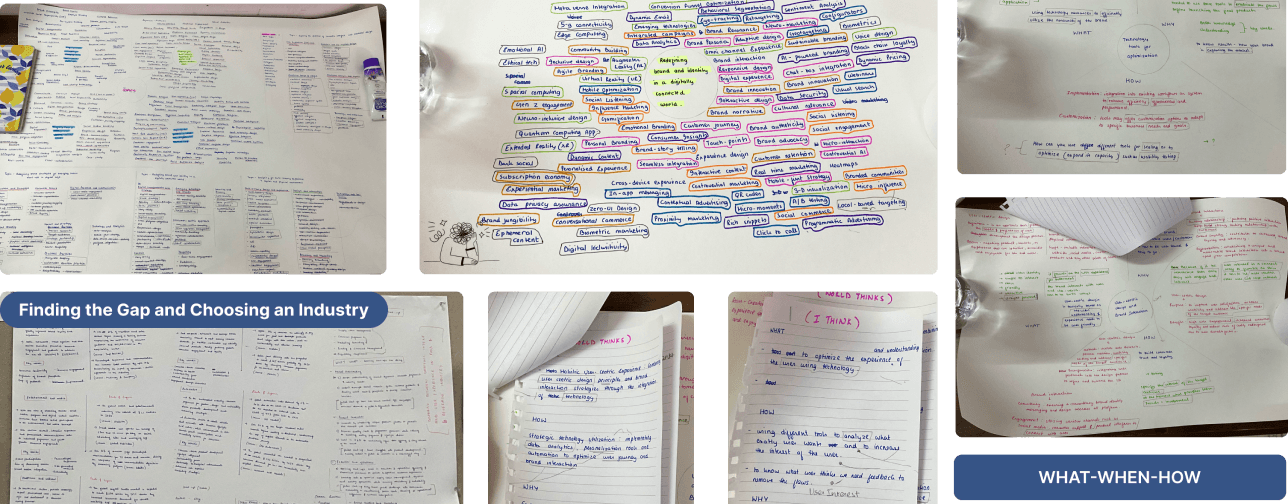

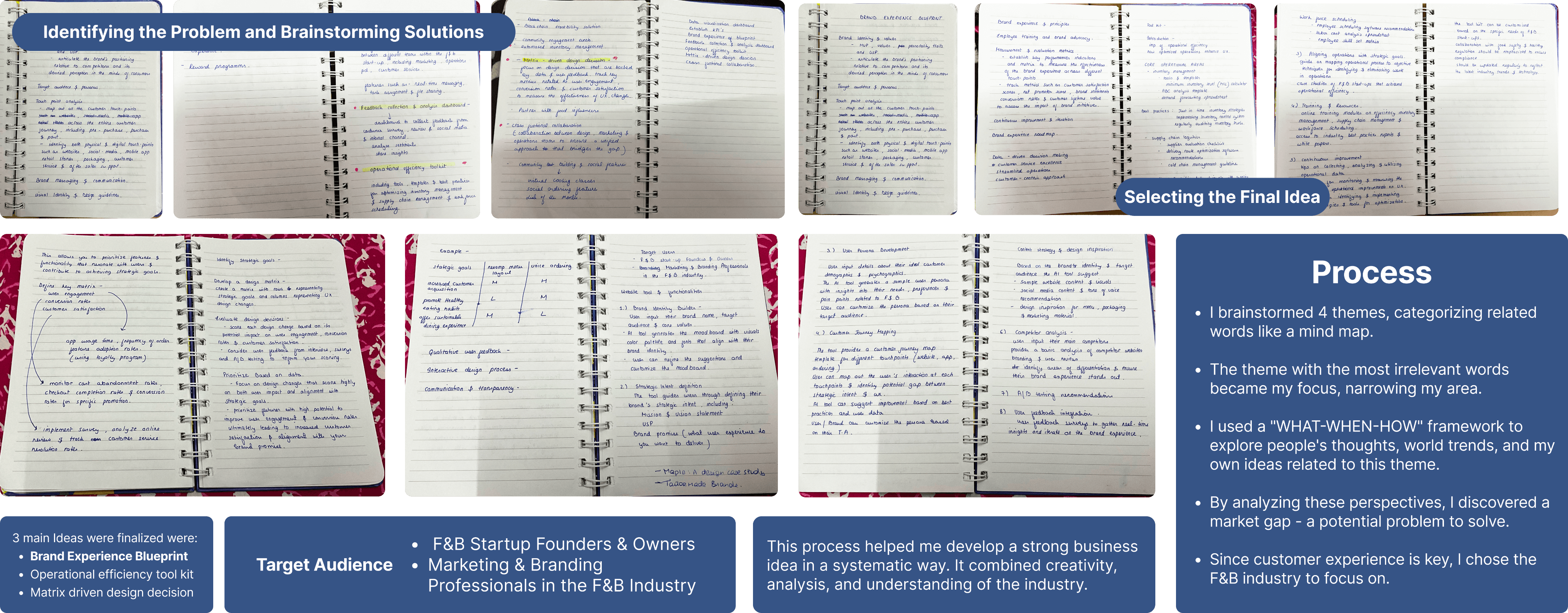

Target Audience
F&B Startup Founders & Owners: Entrepreneurs seeking to enhance their brand strategies and leverage technology strategically to drive growth and innovation.
Marketing & Branding Professionals in the F&B Industry: Professionals responsible for shaping brand identity and customer experience, looking to incorporate strategic technology utilization into their strategies.
The Struggle Is Real
Alignment
Sometimes, there might be a misalignment between brand intent and user experience, leading to inconsistencies in messaging, design, or functionality. It's crucial to ensure that both aspects complement each other to provide a cohesive brand experience.
Technological Constraints
Technological limitations or constraints may hinder the implementation of desired UX features, impacting the overall user experience. Balancing innovative UX design with technical feasibility is crucial to overcome such challenges.
Understanding - User Needs
Despite efforts in UX research, there can still be gaps in understanding the diverse needs and preferences of users, resulting in sub optimal experiences. Continuous user feedback and testing are essential to bridge these gaps effectively.
User Expectations
User expectations and market trends evolve rapidly, posing challenges for brands to adapt their brand intent and UX strategies accordingly. Staying updated with emerging trends and user preferences is essential to address these gaps effectively.
Navigation Flow
he navigation flow for Technova was created to provide a user-friendly and efficient platform experience, aligning with Technova's commitment to innovation and user satisfaction.


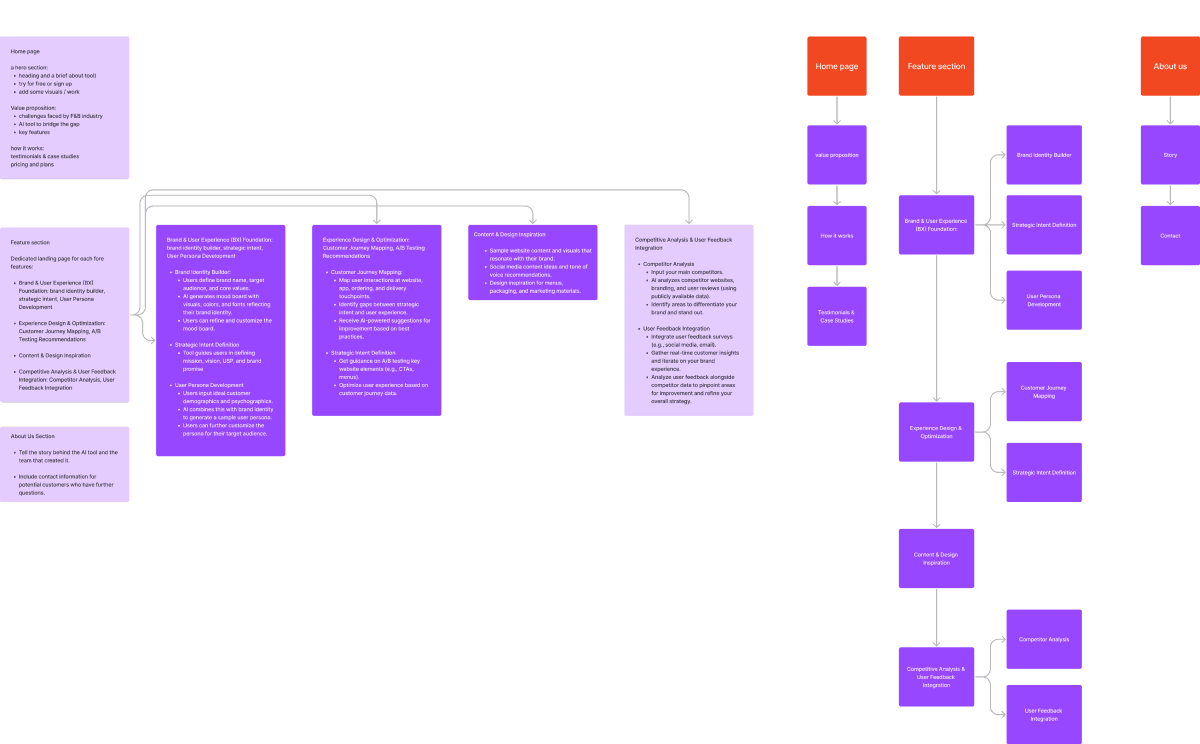

The summary
In summary, while brand intent and user experience are distinct concepts, they are closely intertwined in shaping the overall perception and success of a brand. Addressing the challenges and gaps between them requires a holistic approach that integrates brand values with user-centric design principles.
Purpose in every detail
The design execution for Technova combines a modern aesthetic with functional usability to enhance user interaction. It features intuitive layouts and accessible navigation, ensuring users can efficiently engage with the platform while reinforcing Technova’s innovative brand identity.
Emphasizing brand consistency and adaptability, the design maintains a cohesive visual identity across devices. It focuses on streamlining workflows and creating an engaging, user-friendly experience that meets diverse needs effectively.
Harmonizing the look
The visual guide effectively communicates the brand's identity and aesthetic. The carefully selected color palette, typography, and logo create a visually appealing and engaging interface. The focus on technology and innovation is reflected in the design elements, making the brand appear modern and forward-thinking. The application interface showcases a user-friendly approach, making it easy for users to navigate and interact with the platform.


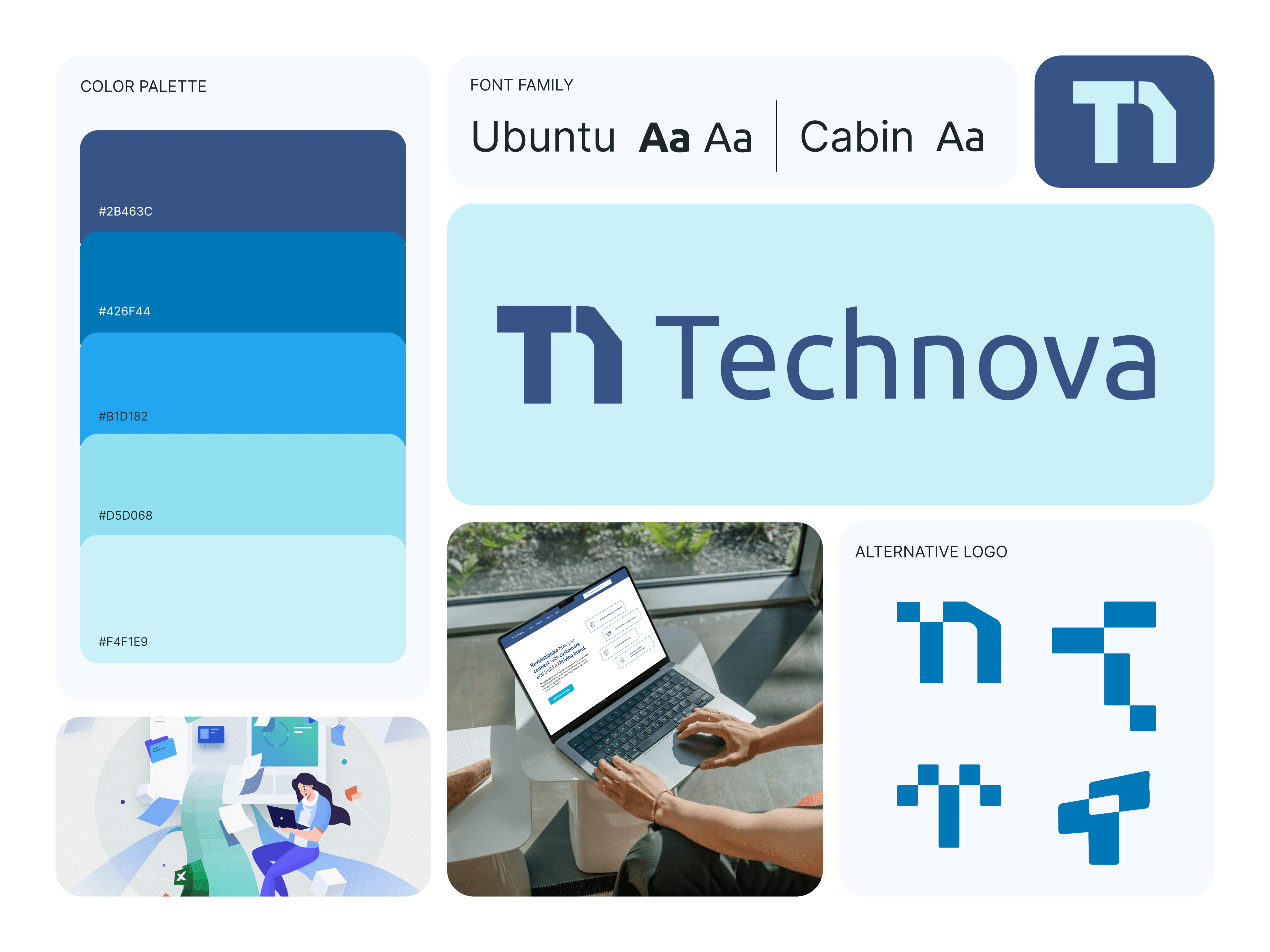

Building the blueprint
The low-fidelity design of Technova provided a simplified framework to validate core concepts and user flows. It enabled efficient iteration and adjustments, focusing on functionality before detailed design work.
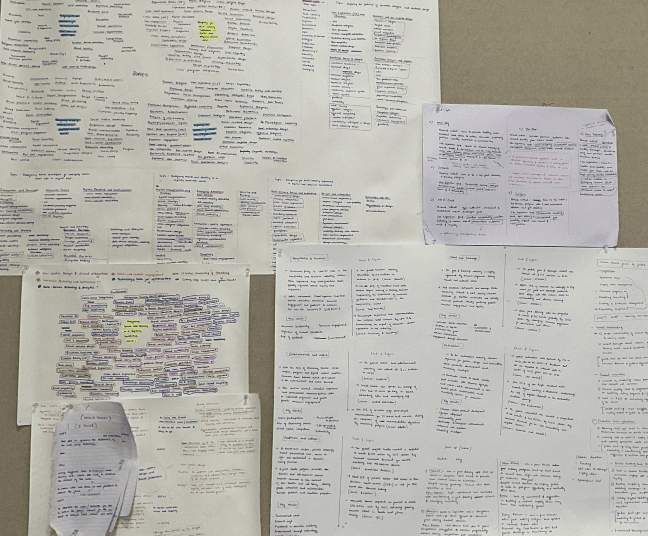

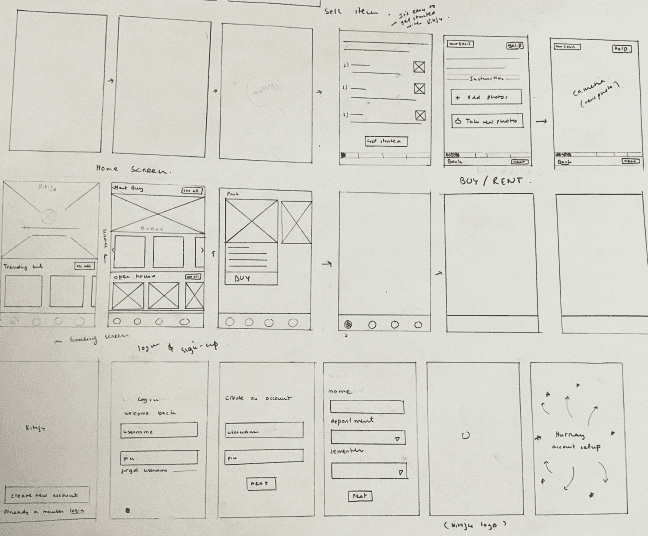

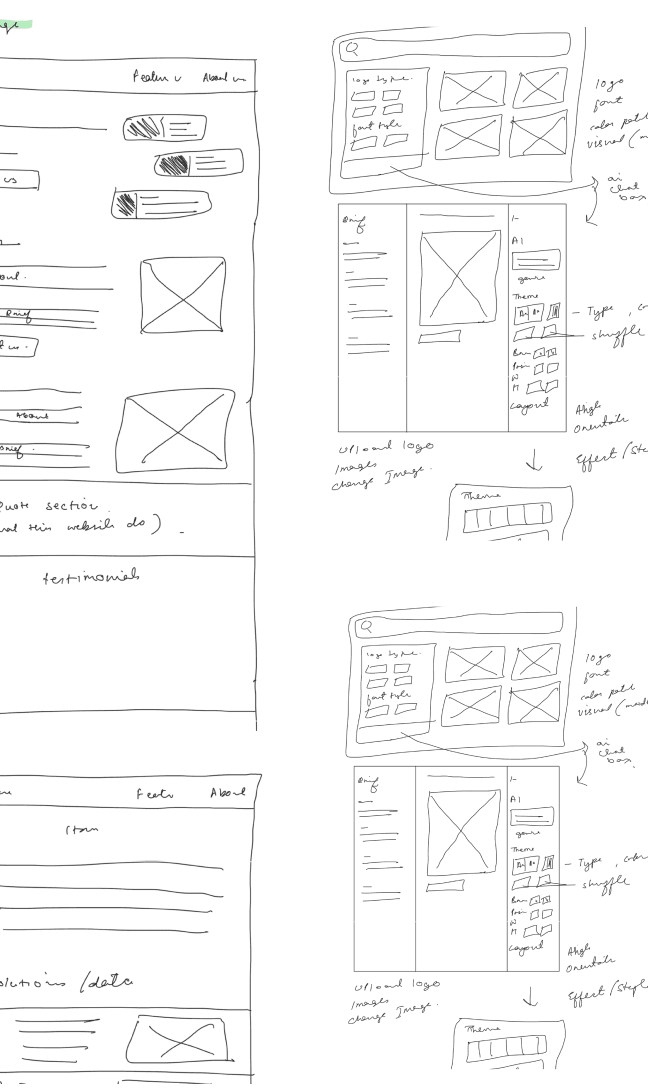

Refining the details
The high-fidelity design detailed the visual aesthetics and interactions of Technova, offering a polished and refined representation to enhance the user experience.




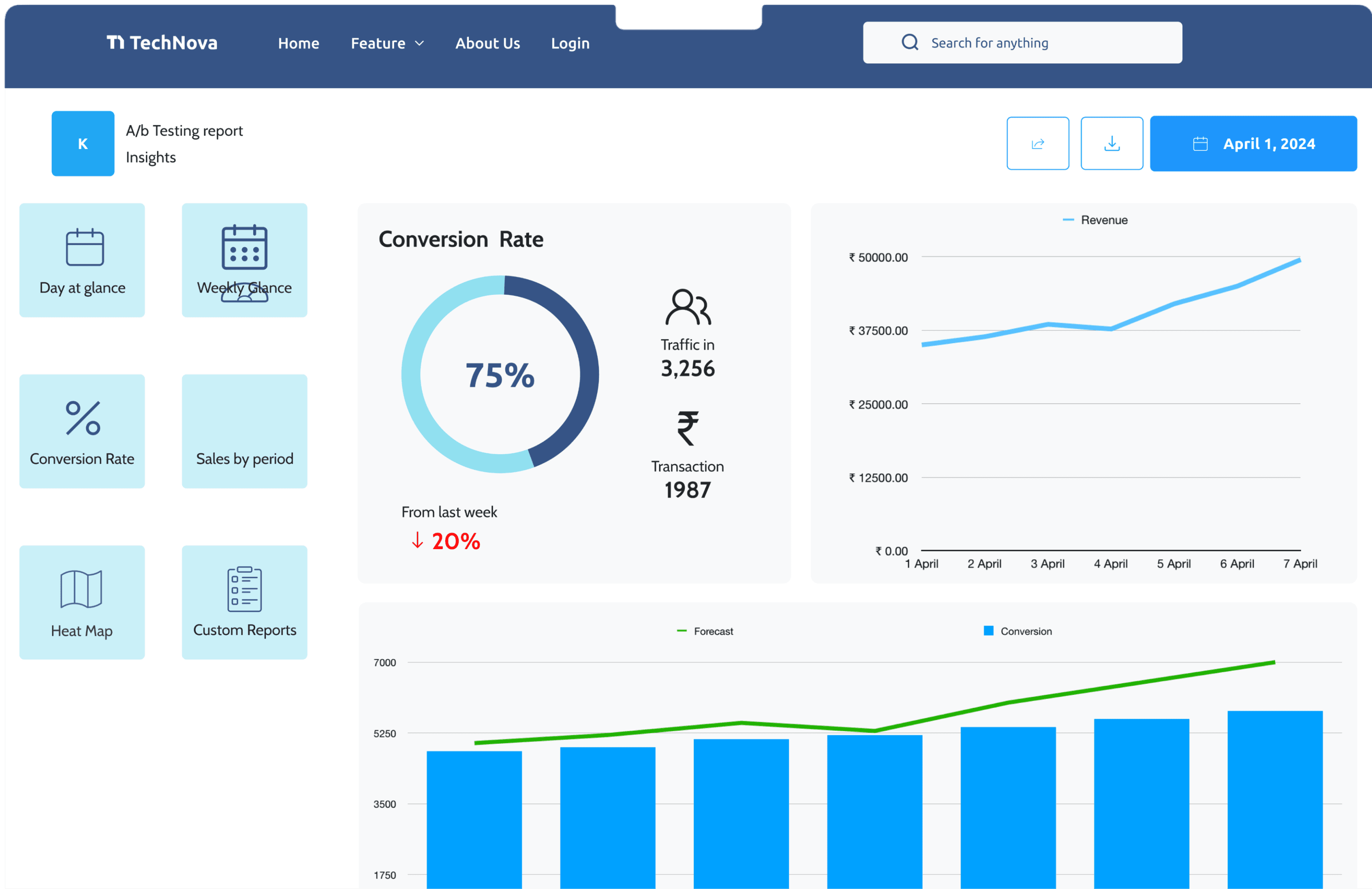

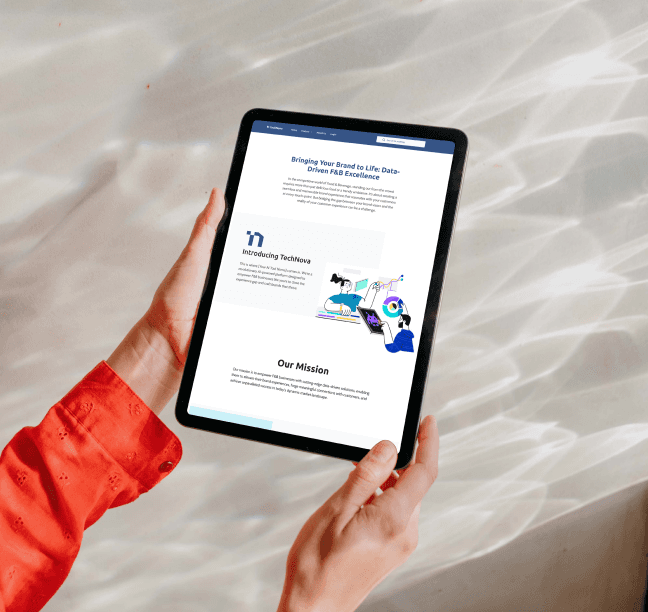

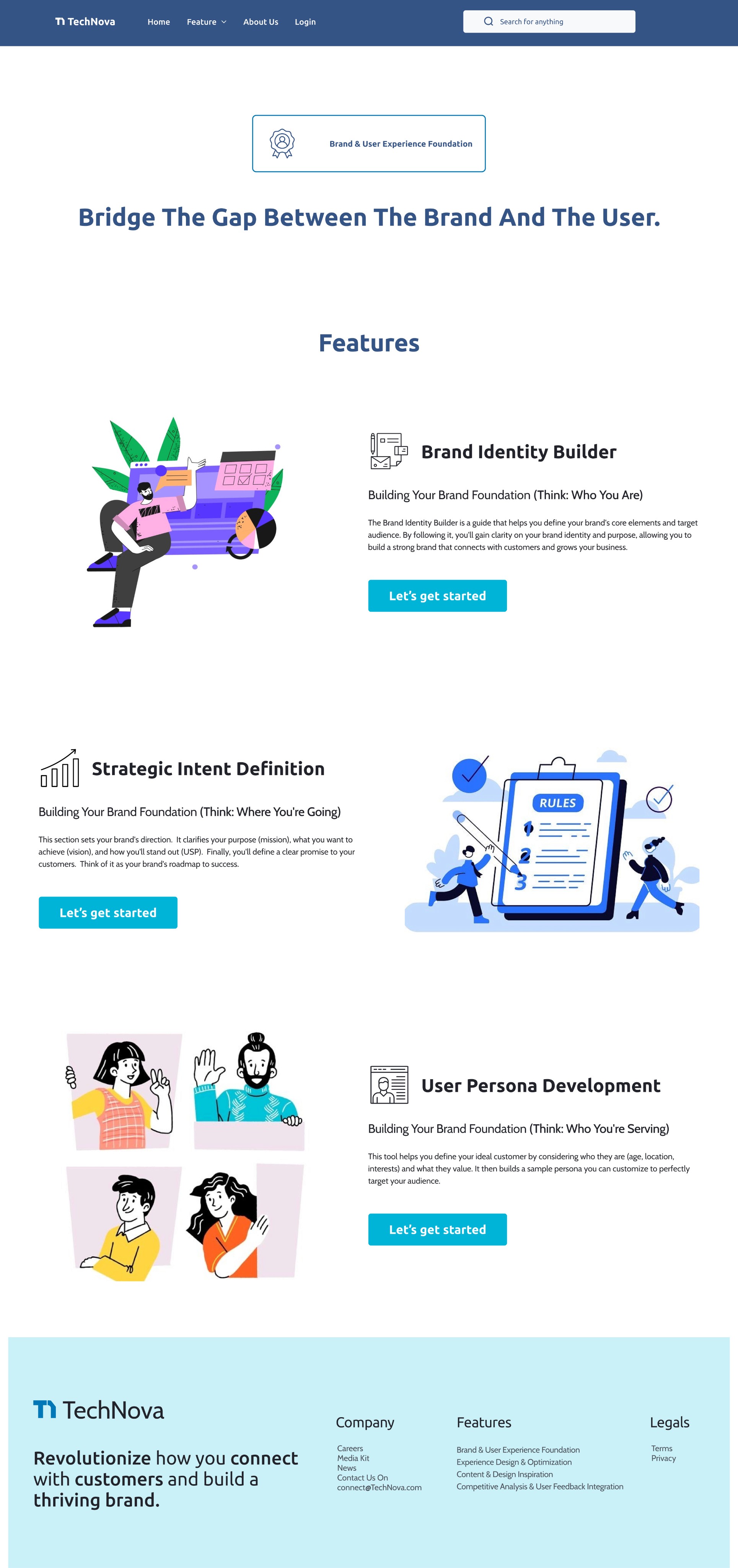

Wrapping it up!
In conclusion, Indian F&B startups must focus on strategic technology utilization and data-driven decision-making to redefine their brand strategies. Aligning with user experience and embracing innovation will drive success and competitiveness. Continuous improvement and adaptation are key for sustainable growth in the dynamic F&B industry.
The Road Ahead
Key Learning
This project highlighted the need for a comprehensive brand blueprint for Indian F&B startups. Defining strategic intent and aligning it with user experience boosts competitiveness. It underscored the role of strategic technology utilization in bridging brand vision and user experience, and the importance of aligning strategies with innovation for success in the dynamic F&B industry.
Take Away
Strategic technology utilization and data-driven decision-making are key for aligning brand strategies with user experience in the F&B industry. Cultivating innovation and fostering continuous improvement are essential for success and relevance in a dynamic market.
View Documentation
To view the complete documentation of the project, click on the "View Documentation" button, which will direct you to the file.
TechNova
Bridging the Gap: Strategic Technology Utilization for F&B Startups in India's Digital Age
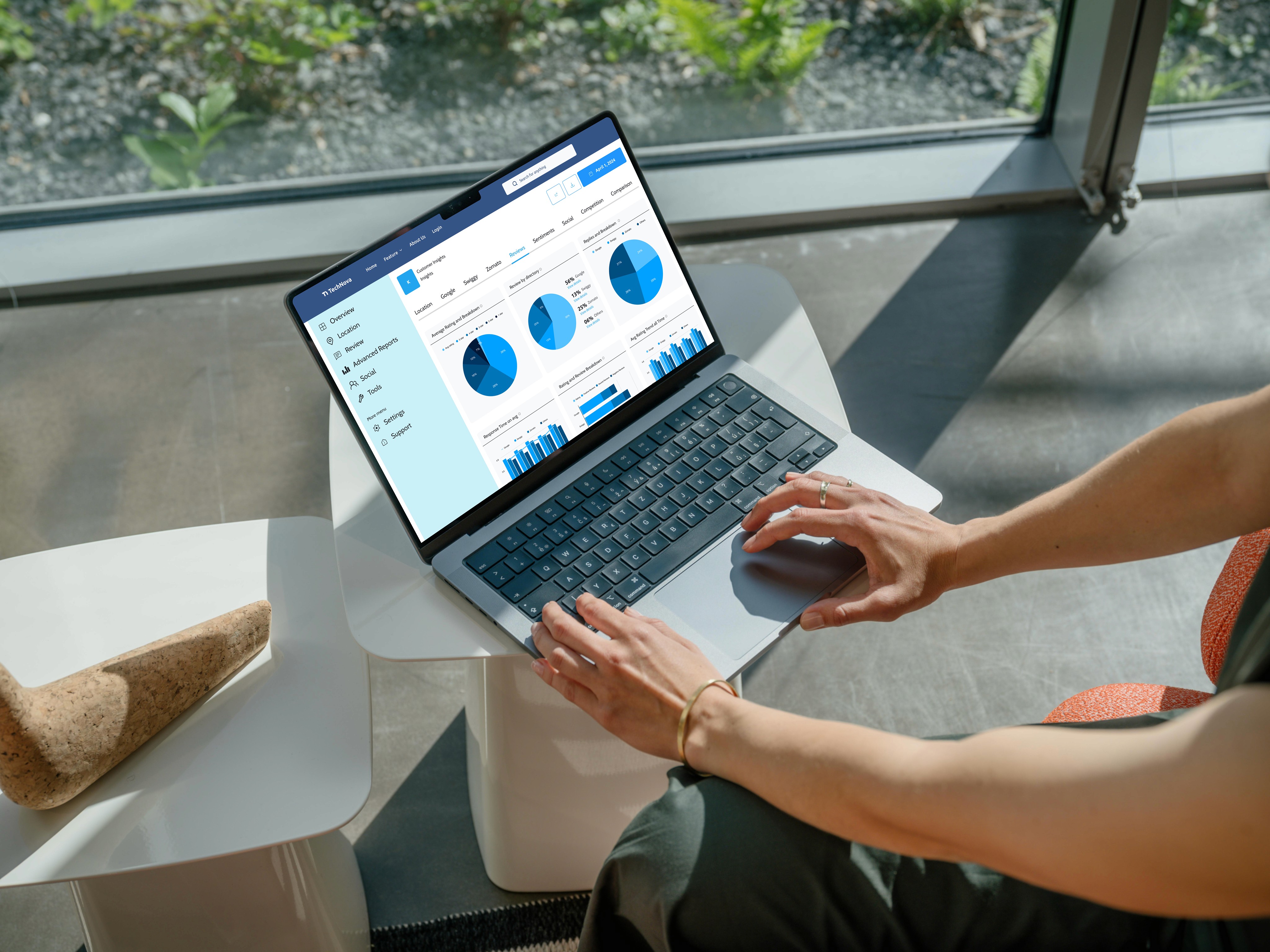
Understanding the Bigger Picture
TechNova
Domain
Hospitality and travel
Platform
Mobile Application
Duration
3 weeks
Strategic Adaptation for F&B Startups in the Digital Age
In the evolving Indian F&B industry, startups must adapt their brand strategies to succeed in the digital age. As technology reshapes consumer behavior and market dynamics, strategic adaptation is essential for growth. This study explores how technology and brand strategy intersect, aiming to close the gap between strategic intent and user experience. It provides actionable insights to help F&B startups navigate digital complexities and remain competitive.
The
gap statement
The absence of strategic technology utilization to analyze user interest and interaction within the brand experience poses a significant gap.
Define
Strategic technology
utilization
Strategic technology utilization is the deliberate use of technological resources to achieve organizational goals. It involves assessing key technologies, aligning them with business objectives, prioritizing investments, and integrating them into strategic planning. This approach drives competitive advantage and sustainable growth through innovation, risk management, and effective collaboration.
The
problem statement
Disparity between strategic intent and user experience in F&B (food & beverage) industry
Understanding the Bigger Picture
Mind mapping & process
Target
audience
F&B Startup Founders & Owners: Entrepreneurs seeking to enhance their brand strategies and leverage technology strategically to drive growth and innovation.
Marketing & Branding Professionals in the F&B Industry: Professionals responsible for shaping brand identity and customer experience, looking to incorporate strategic technology utilization into their strategies.
The Struggle Is Real
Alignment
Sometimes, there might be a misalignment between brand intent and user experience, leading to inconsistencies in messaging, design, or functionality. It's crucial to ensure that both aspects complement each other to provide a cohesive brand experience.
Technological Constraints
Technological limitations or constraints may hinder the implementation of desired UX features, impacting the overall user experience. Balancing innovative UX design with technical feasibility is crucial to overcome such challenges.
User
Expectations
User expectations and market trends evolve rapidly, posing challenges for brands to adapt their brand intent and UX strategies accordingly. Staying updated with emerging trends and user preferences is essential to address these gaps effectively.
Understanding
User Needs
Despite efforts in UX research, there can still be gaps in understanding the diverse needs and preferences of users, resulting in sub optimal experiences. Continuous user feedback and testing are essential to bridge these gaps effectively.
The
Summary
In summary, while brand intent and user experience are distinct concepts, they are closely intertwined in shaping the overall perception and success of a brand. Addressing the challenges and gaps between them requires a holistic approach that integrates brand values with user-centric design principles.
Navigation Flow
he navigation flow for Technova was created to provide a user-friendly and efficient platform experience, aligning with Technova's commitment to innovation and user satisfaction.

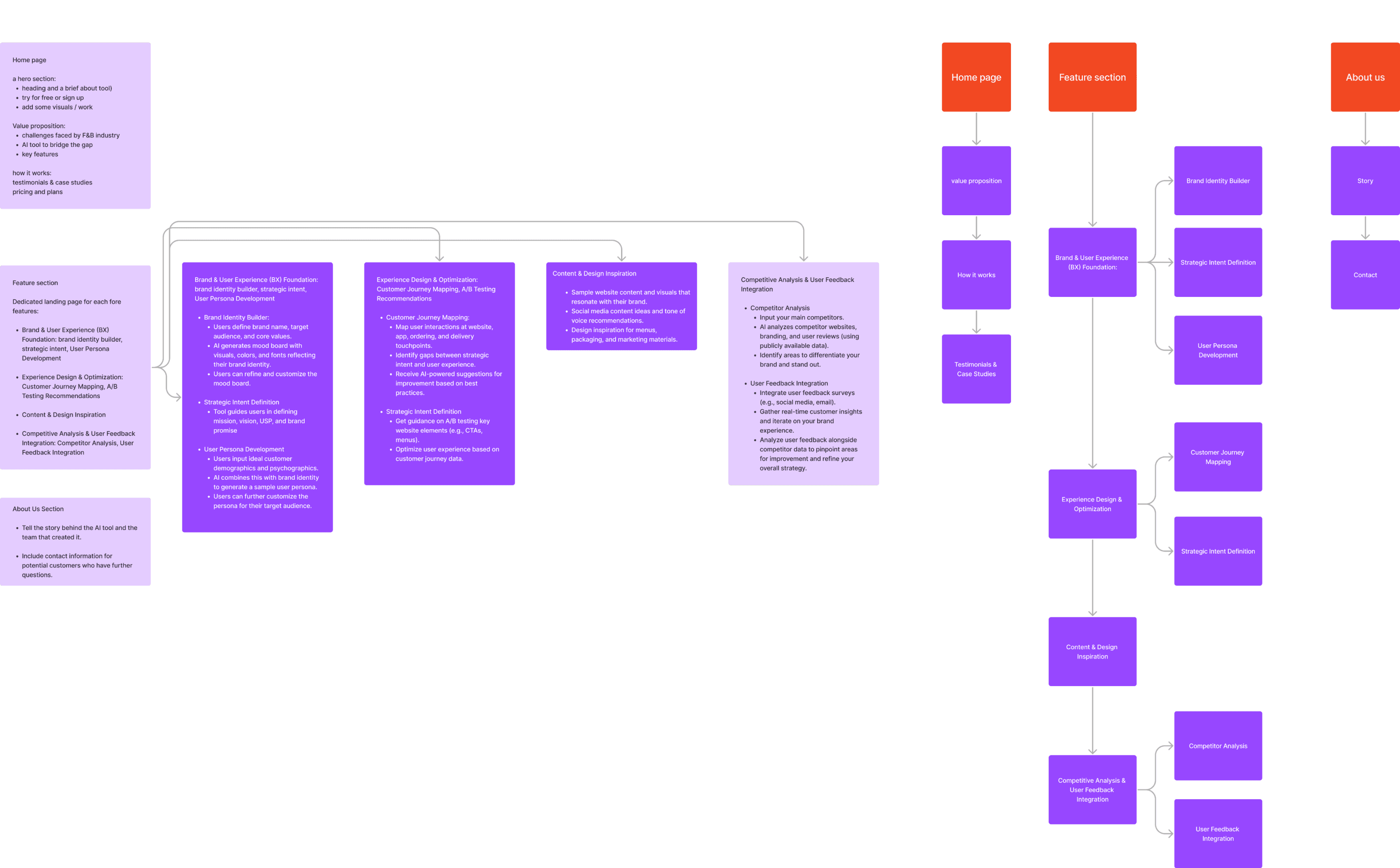
Purpose in
every detail
The design execution for Technova combines a modern aesthetic with functional usability to enhance user interaction. It features intuitive layouts and accessible navigation, ensuring users can efficiently engage with the platform while reinforcing Technova’s innovative brand identity.
Emphasizing brand consistency and adaptability, the design maintains a cohesive visual identity across devices. It focuses on streamlining workflows and creating an engaging, user -friendly experience that meets diverse needs effectively.
Harmonizing the
look
The visual guide effectively communicates the brand's identity and aesthetic. The carefully selected color palette, typography, and logo create a visually appealing and engaging interface. The focus on technology and innovation is reflected in the design elements, making the brand appear modern and forward-thinking. The application interface showcases a user-friendly approach, making it easy for users to navigate and interact with the platform.


Building the
blueprint
The low-fidelity design of Technova provided a simplified framework to validate core concepts and user flows. It enabled efficient iteration and adjustments, focusing on functionality before detailed design work.
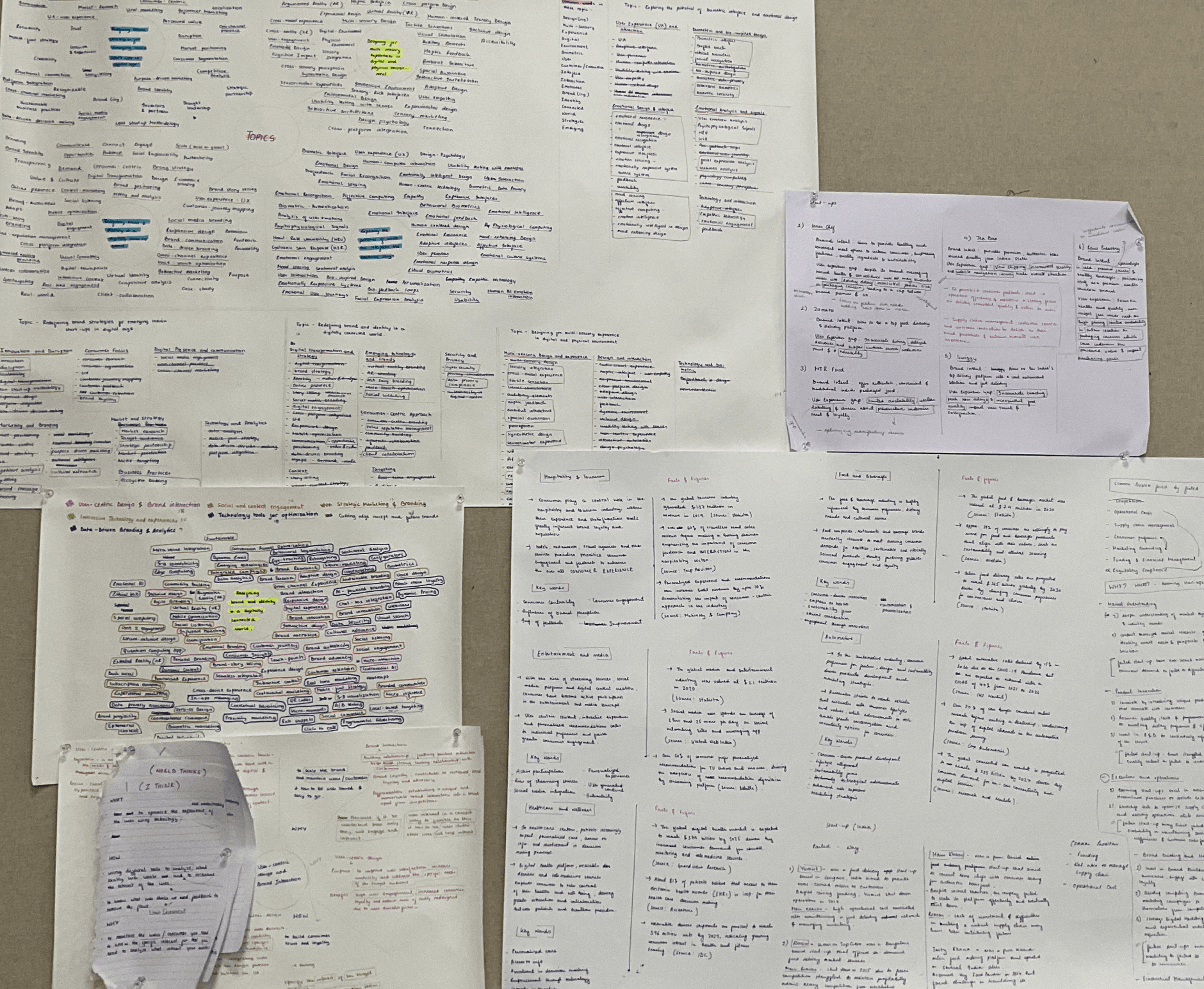
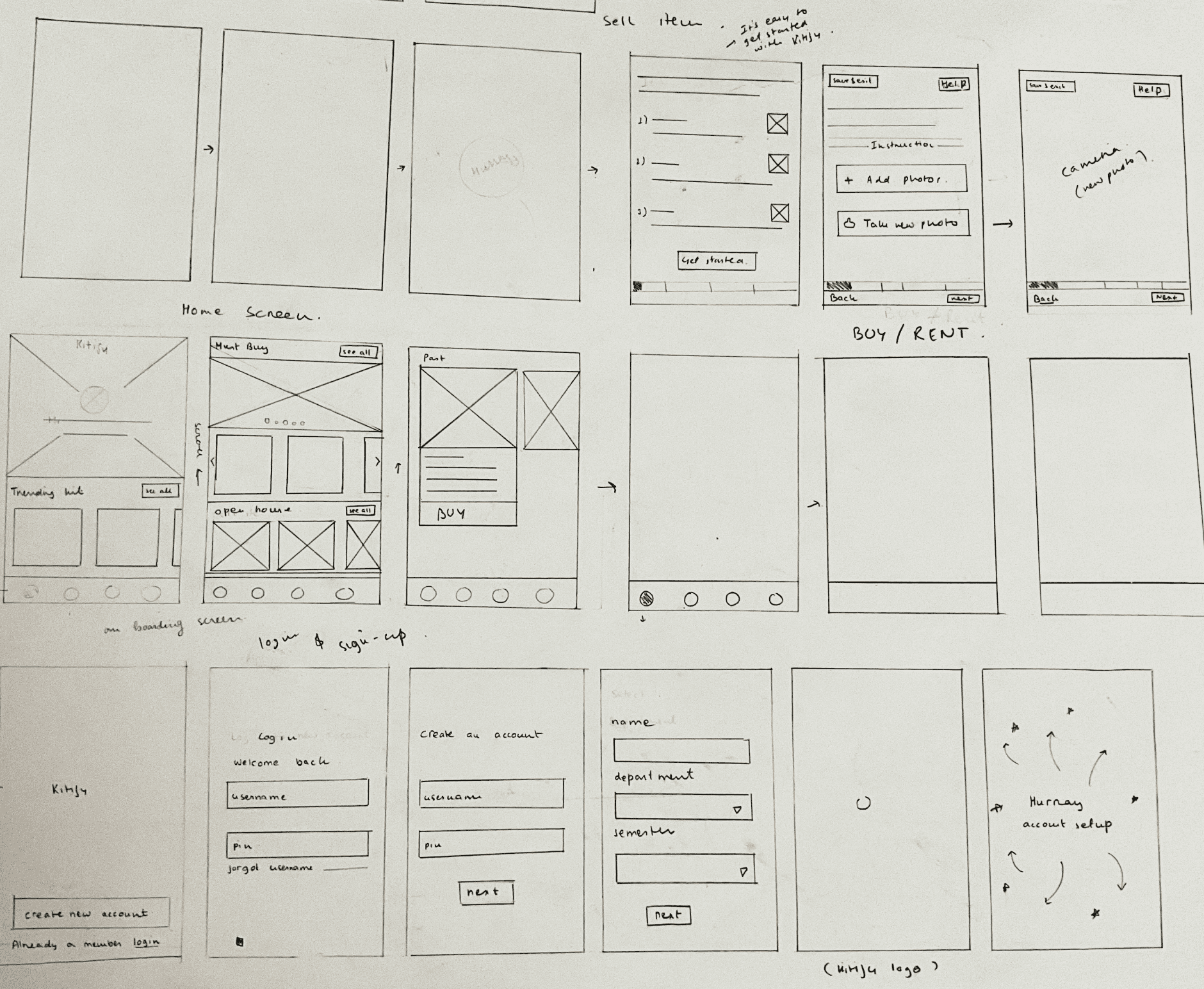
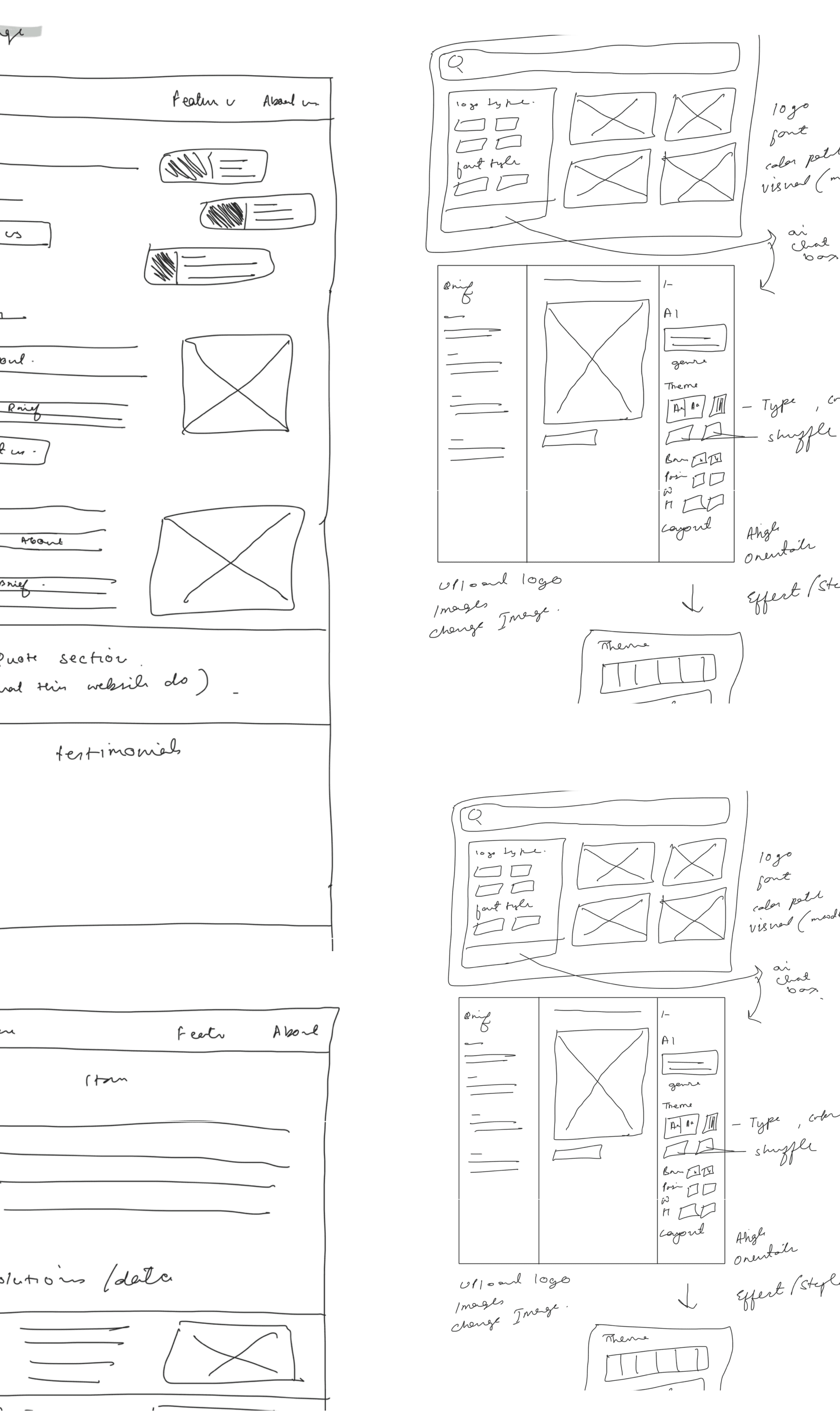
Refining
the details
The high-fidelity design detailed the visual aesthetics and interactions of Technova, offering a polished and refined representation to enhance the user experience.



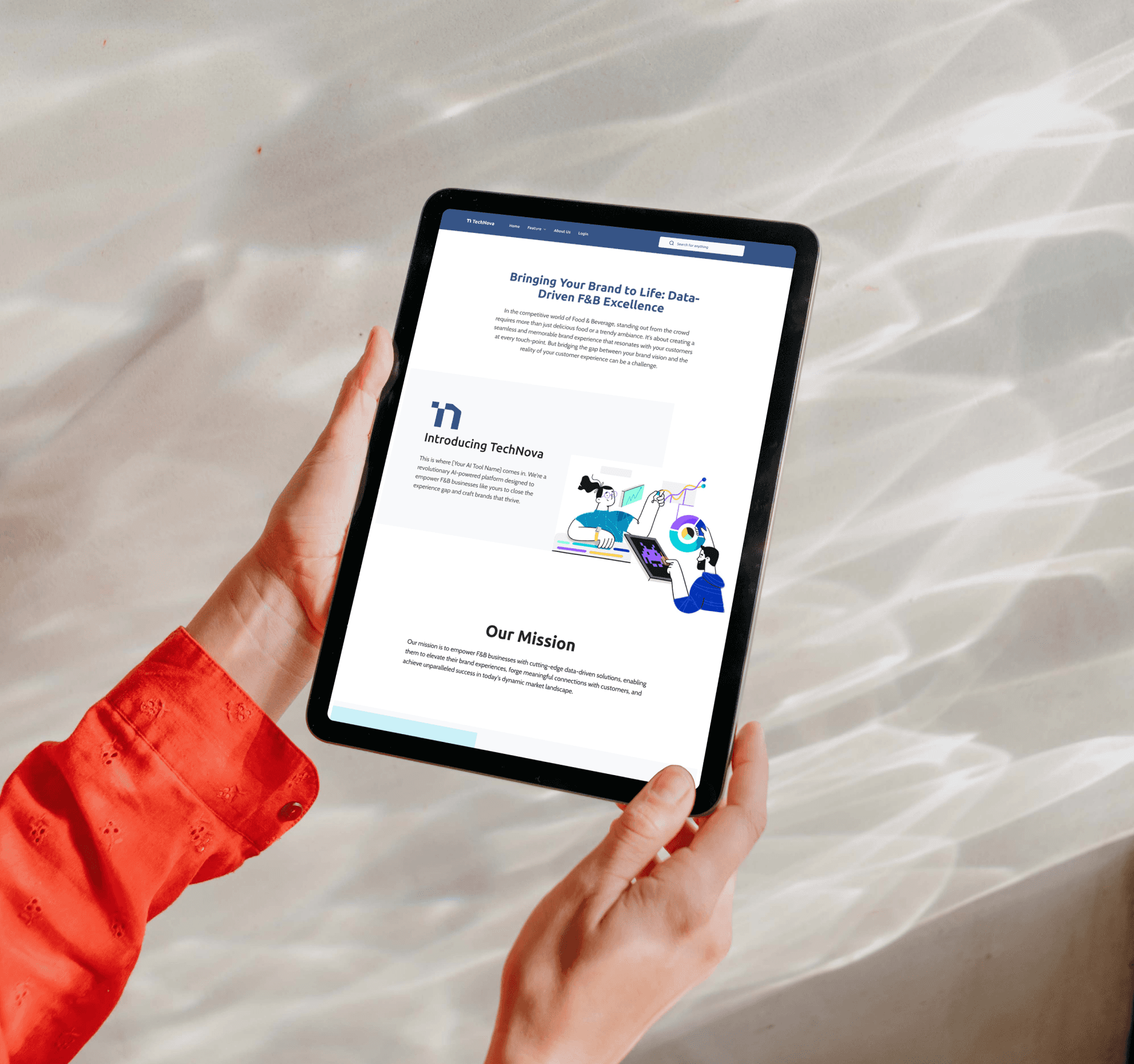

Wrapping it up!
In conclusion, Indian F&B startups must focus on strategic technology utilization and data-driven decision-making to redefine their brand strategies. Aligning with user experience and embracing innovation will drive success and competitiveness. Continuous improvement and adaptation are key for sustainable growth in the dynamic F&B industry.
The road ahead
Key learnings
This project highlighted the need for a comprehensive brand blueprint for Indian F&B startups. Defining strategic intent and aligning it with user experience boosts competitiveness. It underscored the role of strategic technology utilization in bridging brand vision and user experience, and the importance of aligning strategies with innovation for success in the dynamic F&B industry.
Take away
Strategic technology utilization and data-driven decision-making are key for aligning brand strategies with user experience in the F&B industry. Cultivating innovation and fostering continuous improvement are essential for success and relevance in a dynamic market.
View
Documentation
To view the complete documentation of the project, click on the "View Documentation" button, which will direct you to the file.

